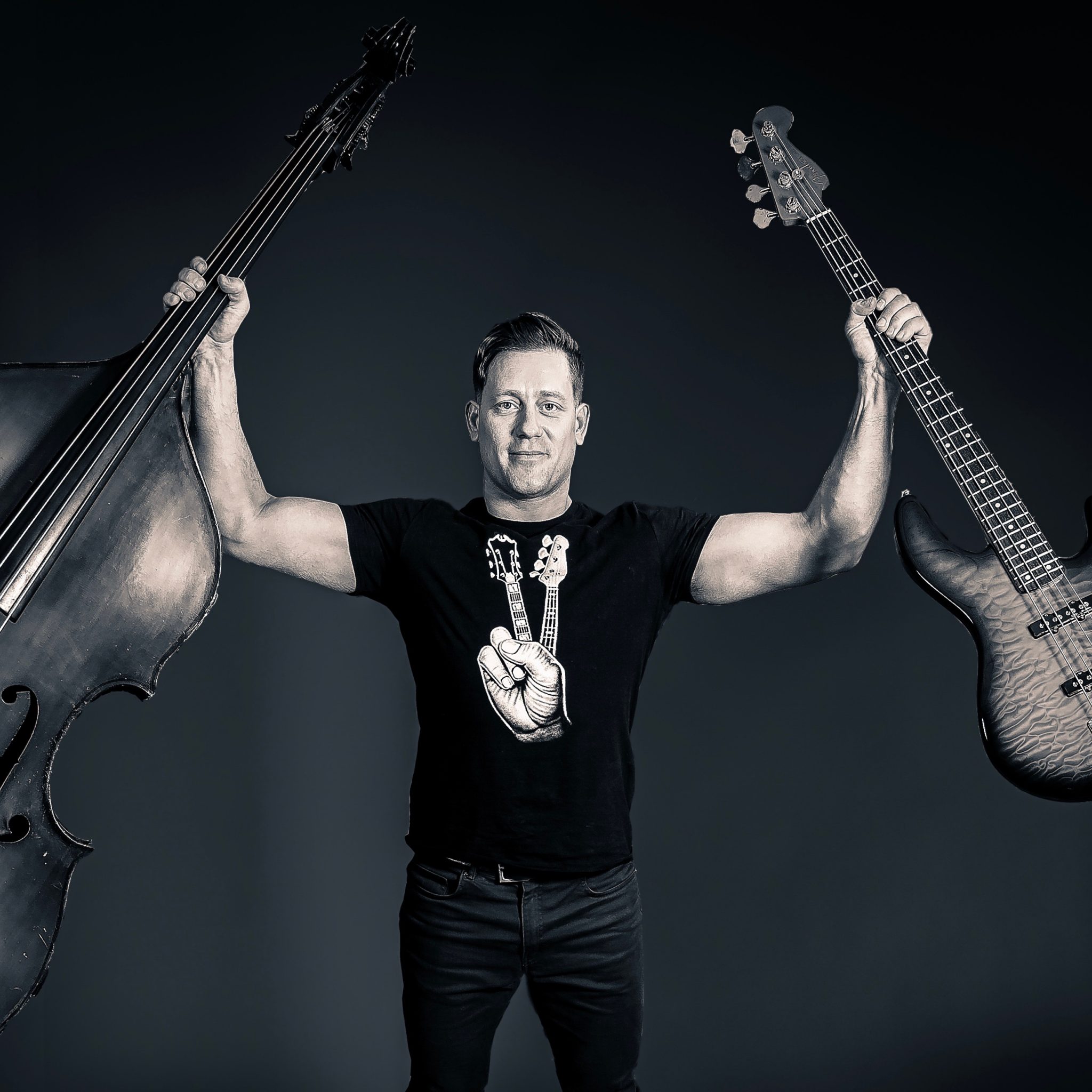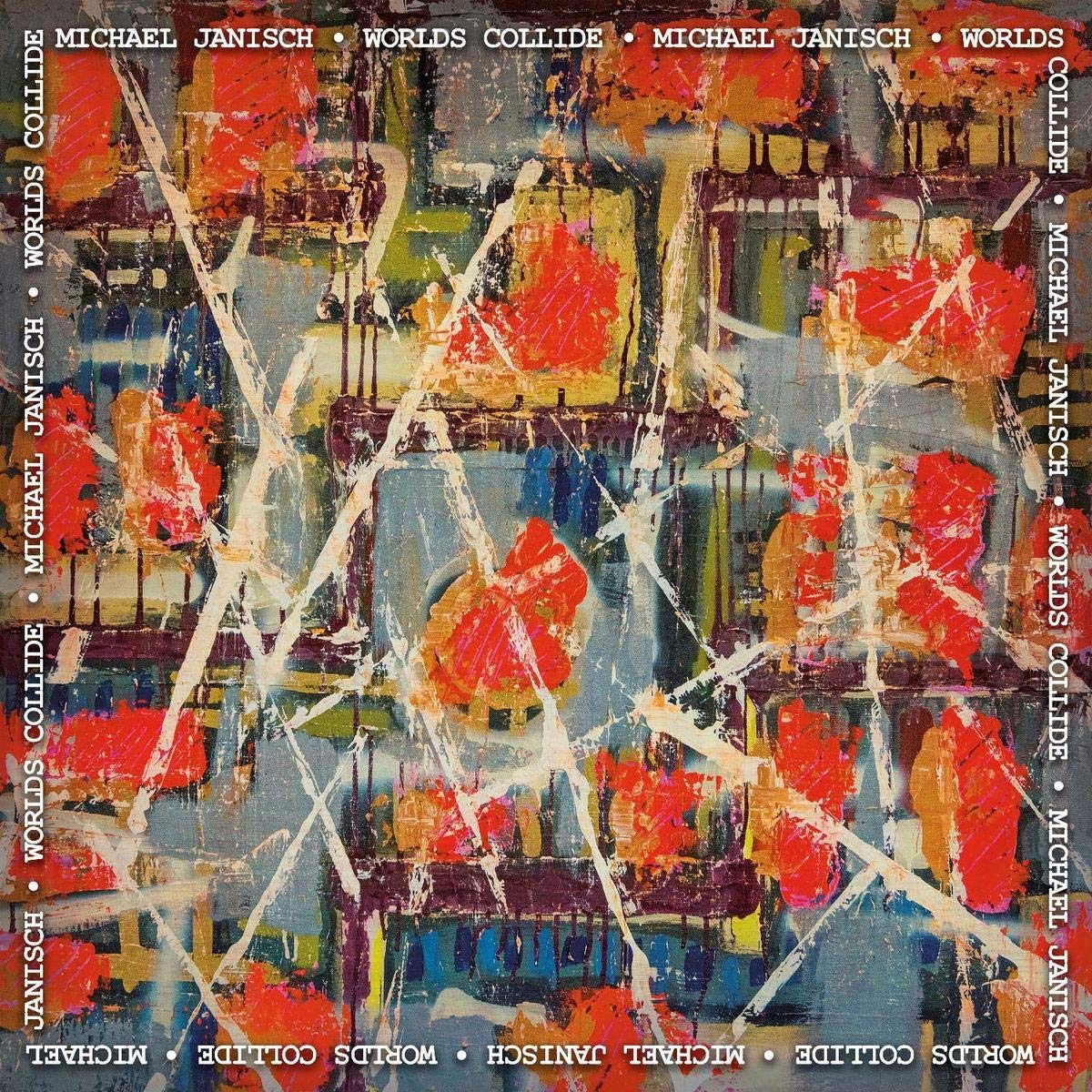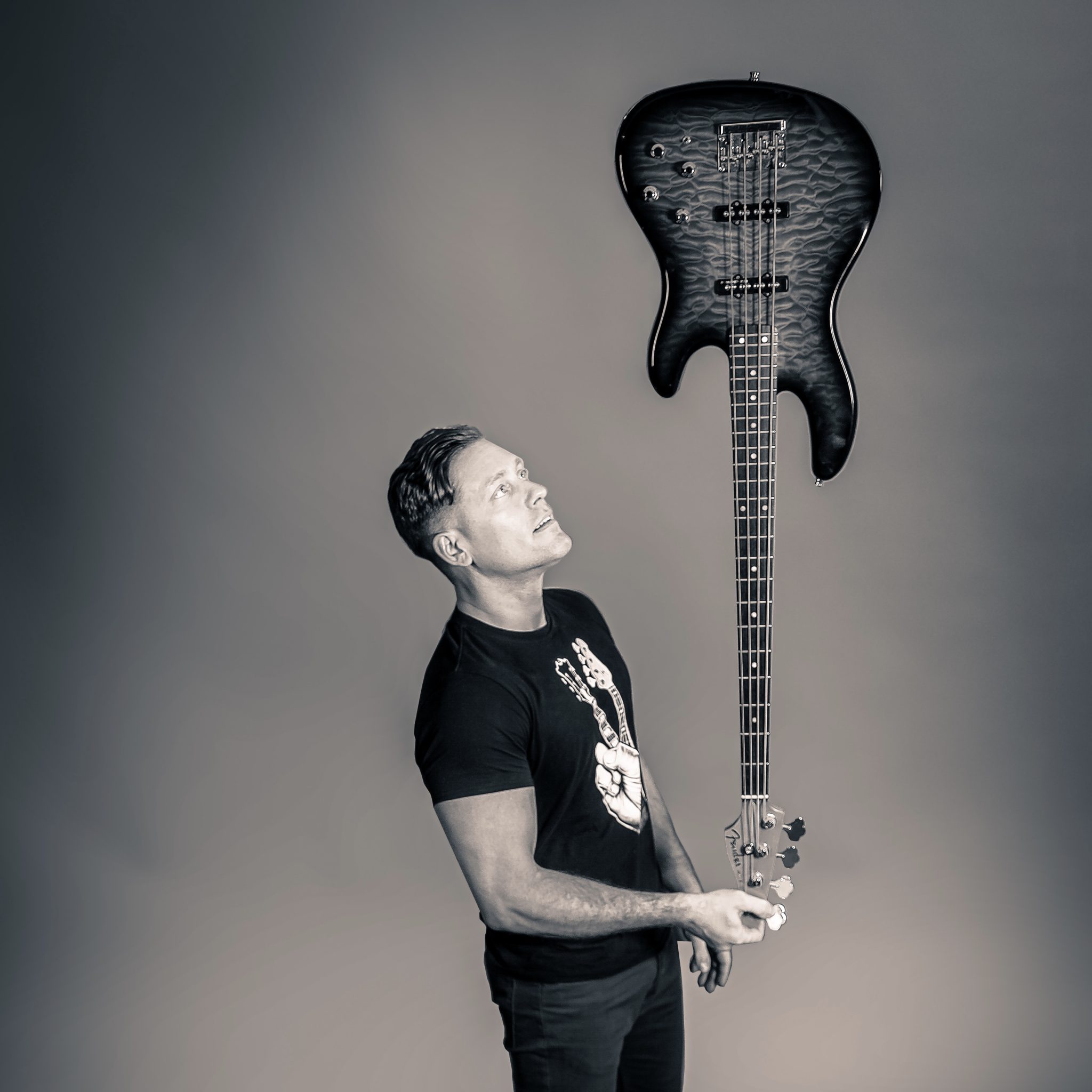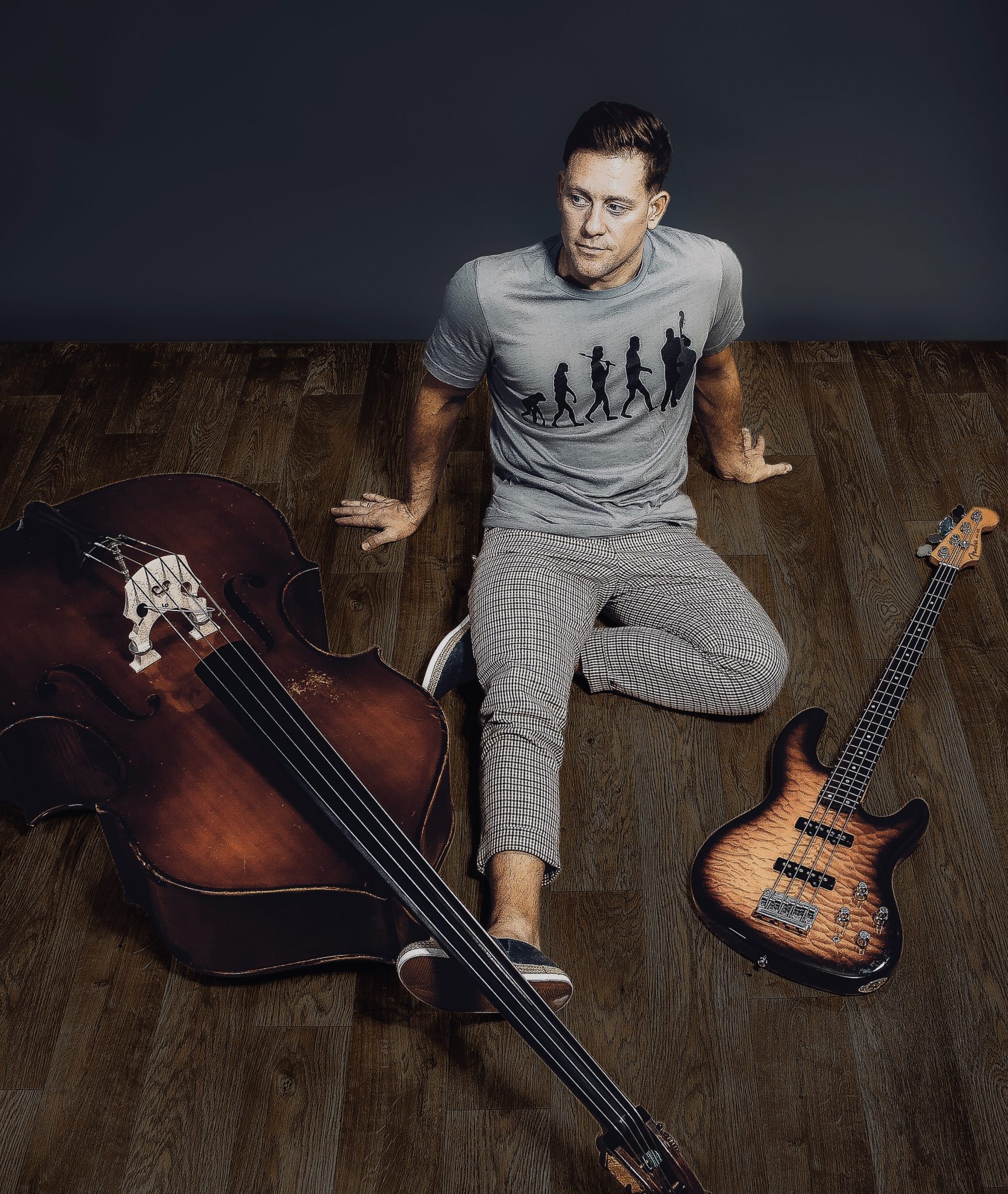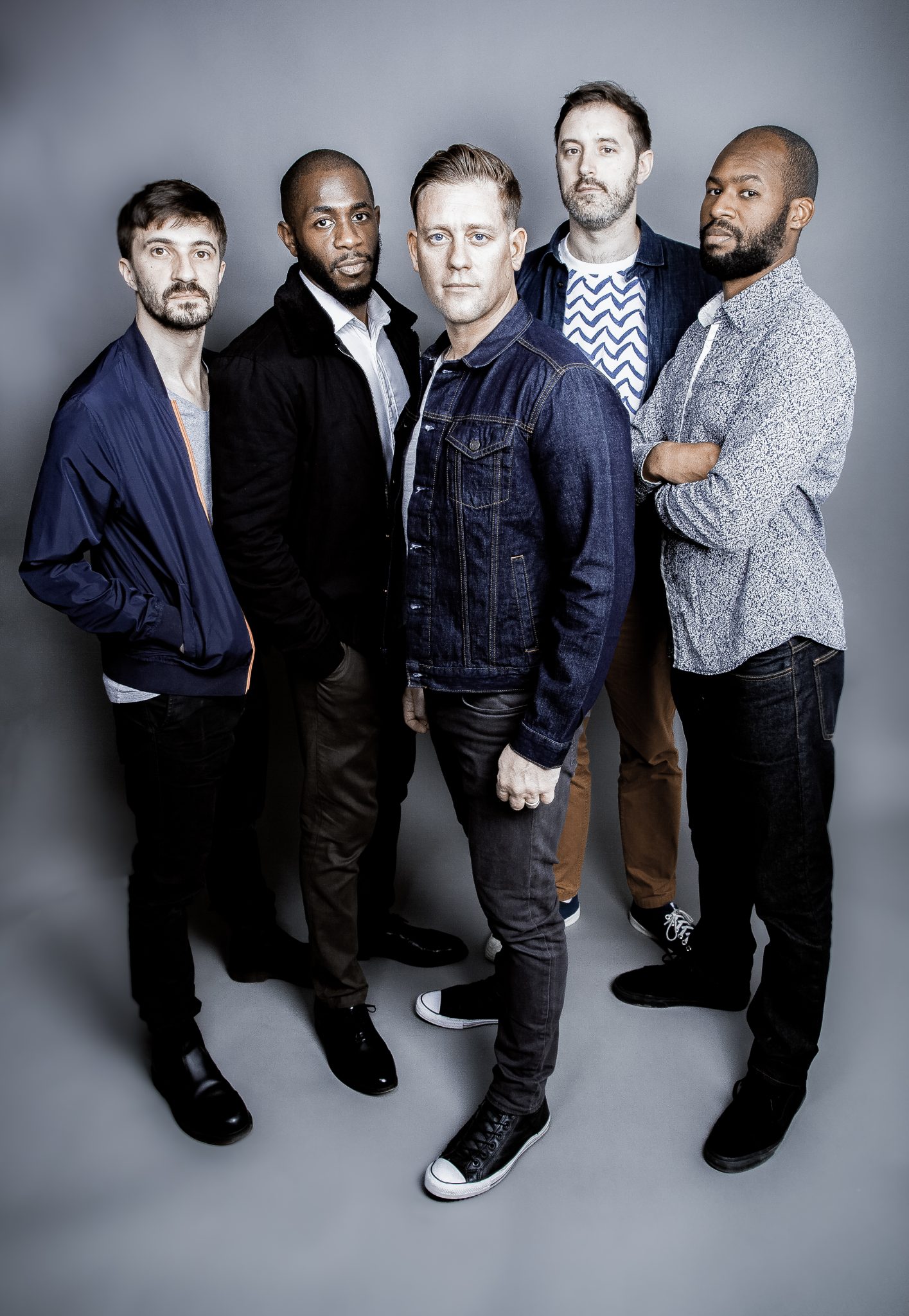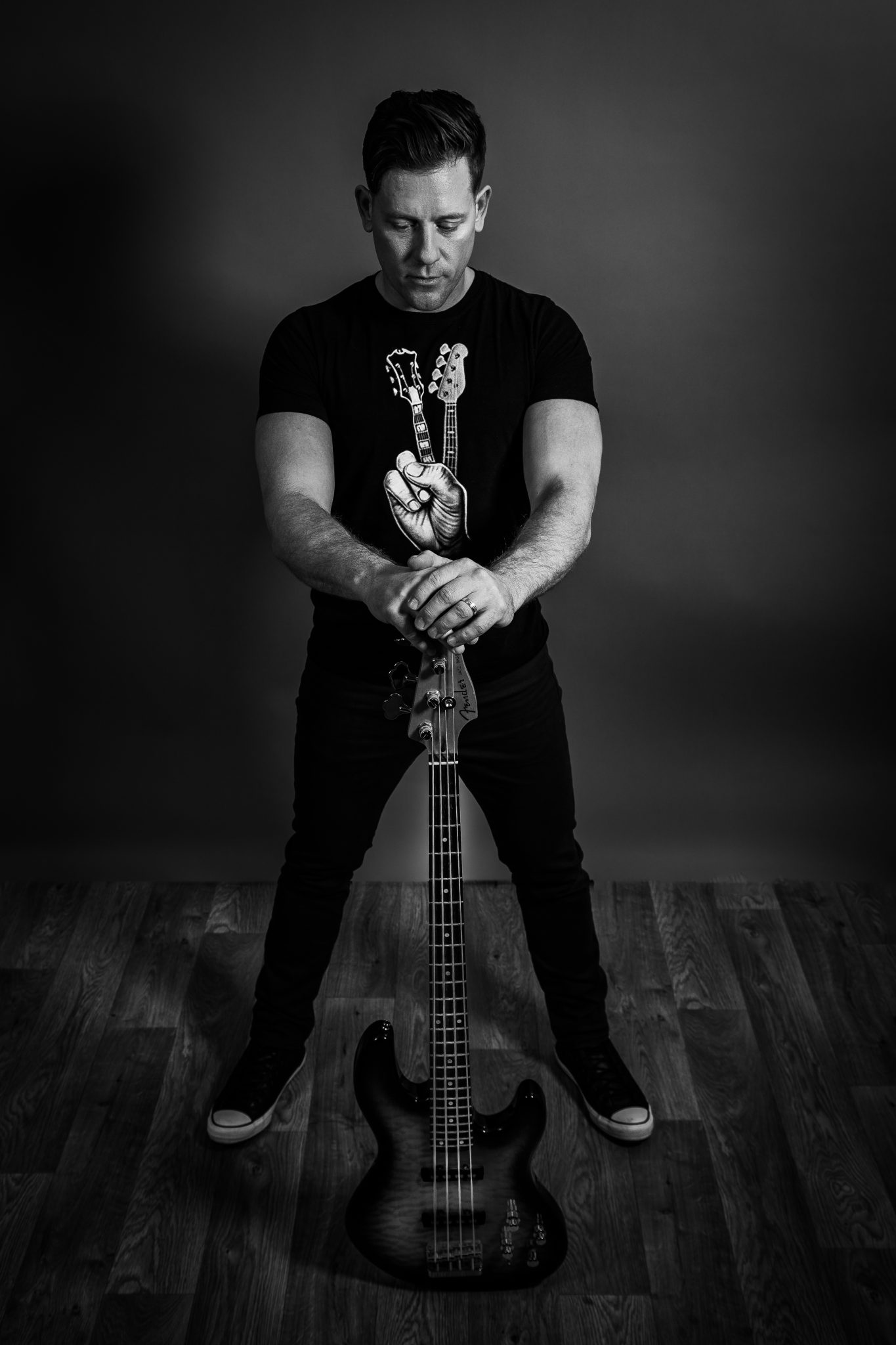Interview with Michael Janisch, “World Collide” album
09
NOVIEMBRE, 2020
Michael Janisch, bass/ Rez Abbasi, guitar/ Jason Palmer, trumpet/ John O’Gallagher, altosax/ Clarence Pen, drums/ Guests: Andrew Bain, drums /John Escreet, keys/ George Crowley, tenor sax.
Worlds Collide (2019, Whirlwind Recordings).
Escrito por Begoña Villalobos
With a dozen albums behind him, Michael Janisch (1979, Ellsworth, Wisconsin, US) releases his latest record entitled Worlds Collide (2019, Whirlwind Recordings), an electroacoustic album of original material recorded at Abbey Road Studios in London, which combines contemporary jazz, strongly influenced by London and New York trends. The album was recorded with Rez Abbasi on guitar, Jason Palmer on trumpet, John O’Gallagher on alto sax, Clarence Pen on drums and features guests such as Andrew Bain on drums, John Escreet on keyboards, and George Crowley on tenor sax.
Michael Janisch – Worlds Collide – [Album Trailer] – Abbey Road Studio 3
Michael Janisch is a bassist, producer, and owner of Whirlwind Recordings, one of the leading independent jazz labels.
World Collide performed in Spain with a powerful British band composed of Nathaniel Facey on alto sax, George Crowley on tenor sax, Rick Simpson on piano, and Shaney Forbes on drums.
In&OutJazz: You are considered to be a leader on the international improvised jazz scene. In your opinion what makes you different?
Michael Janisch: I don’t actually think about being different, consciously. But what I do put a lot of emphasis on is being true to myself, and that makes everyone different. So if all you do is copy someone and play like this bass player, or try and compose like that, then you will always sound like that person. But when I’m composing, even though I have influences, I always think ‘no, I have heard that before, I have to change this’. In my playing and composition, I always try to avoid writing or playing exactly like someone else.
If you hear a song of mine you might say ‘oh, that reminds me of….’ – for me, that is okay – but if you think that is exactly like some other musician, or whoever, then I don’t like that. I don’t mind that you hear the influence, but I always hope that it is a unique interpretation of an influence. So in that sense, I think I’m different, and I think that the same can be said of every great musician; they are true to themselves. And as I get older, and more confident, I don’t have time to think about other things, I just have to be me, but sometimes it is hard because you can think later ‘Oh, I’ve heard this before, I don’t like this, and then the next day comes, and you think ‘Oh, that was shit’, so you spend the whole day composing and then you throw it all away. But sometimes it just flows and you think ‘this is great’ – so for me, that’s my process. That was a good question, it made me think!
What importance do you give to the different elements – melody, and improvisation -, on your latest album compared to previous ones?
This album is a big mix of different sound worlds, which is one of the reasons I suppose I called it World’s Collide. The first track was written for a film, which never became a film because they lost the funding. The second song was influenced in part by Aphex Twin; I was thinking about his electronic music. Aphex Twin’s compositions, which I love, start with an idea that grows and changes, it’s pulled away, disappears, and then comes back later in a new way; so that’s that composition. It’s more like a classical composition. But within each song, I always give someone a platform to improvise. And then there’s a song called Frocklebot, but we are not going to do that tonight because I don’t have a double bass, but on that song, on the album, there is a first section and the last section and everything in the middle is completely free – because sometimes you just have to stop writing and just let the musicians sound. And also with five people, you have to think of the overall sonic picture, the balance, almost like when you see a painting – you can’t have red everywhere, or blue everywhere, so sometimes it is nice not to have blue – not to hear the drums – just to have the trumpet and saxophone players playing together. So I am thinking about these things, which I haven’t done so much on previous albums. Previous albums were always about the ensemble, which is cool, but I wanted to have a different sonic space on this album.
I think some of the melodies on this new album are more singable, to an everyday music listener, and perhaps someone who isn’t thoroughly immersed in this kind of music. The reason I know this is that many people have told me this [laughs], but even so, there are still some really challenging metric things happening underneath the melodies; but it is done in a way that is really subtle. The musicians in the crowd may appreciate these things happening, but people who aren’t musicians may be more inclined to connect with the sing-song nature of some of the melodies. So on this album, this was a sort of challenge I wanted to take on, this idea of subtle yet complex rhythms, mixed with memorable themes.
Can you tell us about the specific influences and jazz trends for the new album, for example, from London and New York?
The London scene, and especially the current scene, is heavily influenced by Afrobeat, with many musicians citing Fela Kuti as a starting point. Naturally from hanging out and learning from musicians who have this as part of their history and lineage it’s found its way into my own music. An Ode to a Norwegian Strobe features a quite common Afro Beat rhythmic pattern throughout, but I’ve sort of morphed that into 9 beats rather than the much more commonly heard 4 beats per measure. I was listening to some interesting Grime beats that I was introduced to by some London friends, and I really liked some of the grooves, especially the urgency of the drum patterns, and thought ‘let me do something that references this energy but has my own spin on it.’ So that part is coming out of London influence and myself being immersed in that scene for over 15 years now. As an American who spent most of my life learning from the masters of this music and still being very active performing with people Stateside, this influence is just natural and forms the foundation of all my music.
Where are you from?
I am from near Minneapolis, a place called Ellsworth, Wisconsin, it is a small town right on the Mississippi river in the north, in the middle of the states. I lived in Boston while at Berklee for 3 years, and New York for just under 2 years but have spent now most of my adult life in London, England.
Can you tell us about the various elements of your work?
I always balance structure and improvisation; it is something I have always done, I always think about both a lot. I don’t think I’ve changed much; it is just different styles; I love writing and I love letting the band play, I have been like that my whole life. It has been a very consistent goal of mine.
Sometimes some of the songs are written with so many details that the band says ‘oof, this is hard’ so this is why in other songs I just make a simple melody and let them go. You know: you make them work and then you let them play because I love both worlds.
How do you combine owning one of the most prestigious independent jazz labels with your role as a musician?
Well, thank you for saying that, but the label was originally just a way for me to release my own music on my own terms. Whirlwind is a lot of work but it gives me great pleasure as I love running it, and it also provides an extra source of practical income so that I can do what performing I want to do on my own terms. I can just do the shows and tours I want to do and run my label, and most importantly be home a lot, so I can see my kids grow up!
‘Frocklebot’ – Michael Janisch
‘Freak Out’ – Michael Janisch
What is your opinion about your recent MOBO nomination?
I was so surprised about that because I was in the Japanese Embassy to get a visa to play in Japan and I came out and I had 50 text messages saying ‘Congratulations!’. And then I went on Twitter and it was saying ‘Michael Janisch, with Esperanza Spalding, Jacob Collier, etc’ and I was just thinking ‘Wow, that is completely random… thank you so much’. And I went to the award ceremony with my wife and we were on the red carpet, and it was hilarious. I knew I wouldn’t win but it was great to be nominated.
What was very weird yet interesting was the mixed reaction I received from some sectors of the music industry, from musicians and also industry folk alike. While there was a lot of lovely messages of support, I was pretty taken back with how some promoters snarkily commented that I was a «commercial artist» now because this is seen as a huge industry award, almost making the accusation I was some kind of sell out that wasn’t part of the grass roots scene anymore. Some musicians seemed angry because the award stands for ‘Music Of Black Origin’ and they felt that I shouldn’t get it because I am white (I even got some emails from anonymous people saying I didn’t’ deserve it for that reason), and it all seemed so weird to me because I have always performed and revered music that had its origins from Black Americans first and foremost, nearly all my musical heroes are Black, and this award is specifically to celebrate all music that comes from Black origin, but any person from anywhere or any race can be nominated.
How would you describe your last album
I think as I’ve always done I am influenced by many types of music and I am always trying to bring these influences together in my own way. – this inspires me. So with this album I celebrate these «world’s colliding» at present, this is how I am going to continue to compose and conceive with all these elements combined, be it influences from electronic music; afrobeat, swing, free improv, song forms, punk, rock– everything and anything is okay.
Well, that’s’ all we have time for, you better get on stage! Thank you very much.
Check Michael out here: www.michaeljanisch.com and his label is: www.whirlwindrecordings.com
09 de Noviembre de 2020


